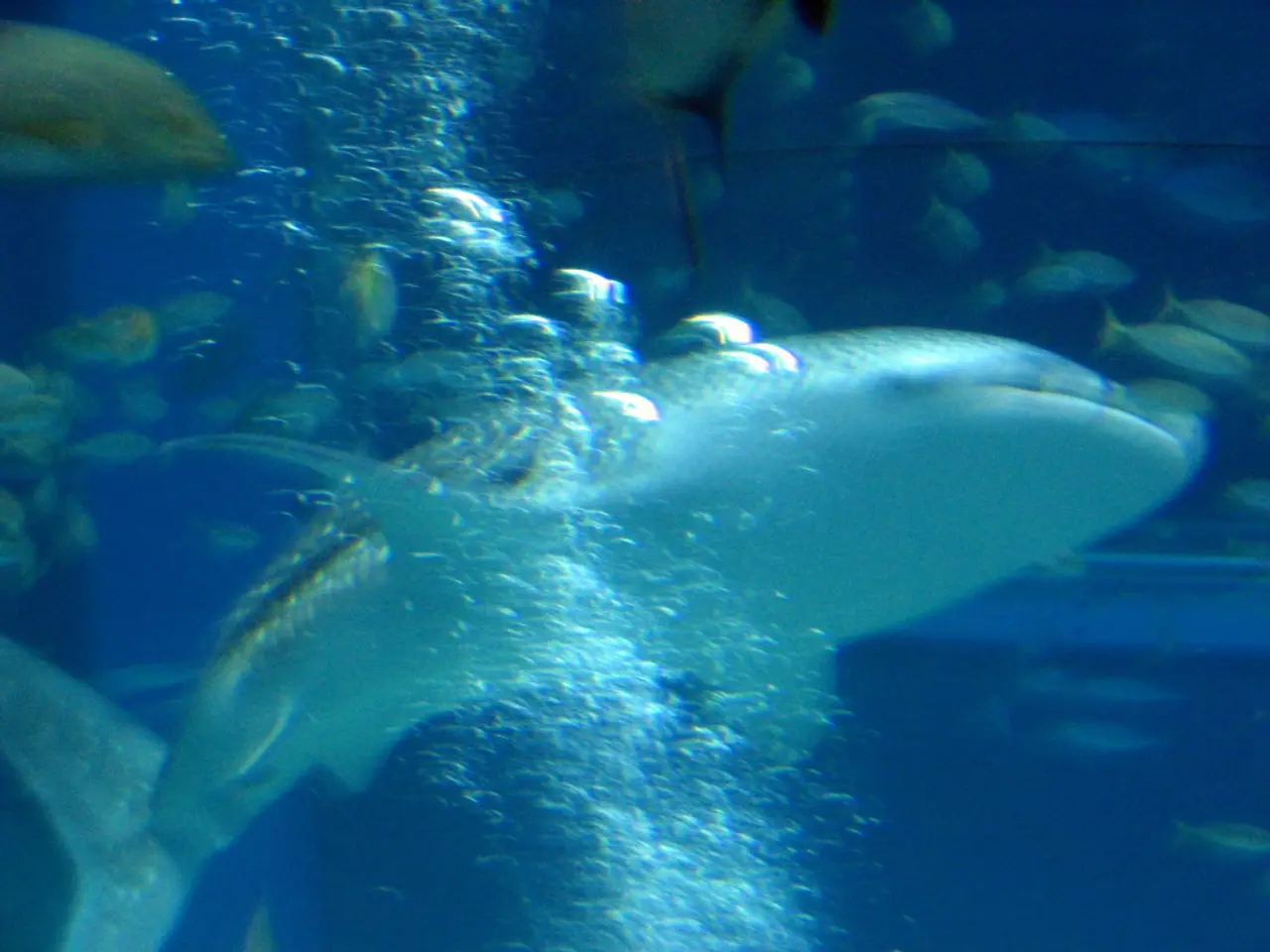Shark Training: Feeding Lionfish for Control Purposes
In the crystal-clear waters of the Caribbean, a unique project is underway on the Island of Roatan, Honduras. Local divemasters are attempting an unconventional approach to combat the invasive lionfish population - training sharks to eat them.
Lionfish, native to the Pacific and Indian Oceans, have found a new home in the Atlantic, particularly in the Caribbean and US waters. With no natural predators in their new environment, lionfish populations have exploded, posing a significant threat to local marine ecosystems.
The project at Roatan Marine Park aims to encourage sharks to view lionfish as prey, potentially helping to control the invasive species. Biologists and scientists throughout the region are collaborating with local Marine Parks in this endeavour.
The strategy involves training sharks to associate the sight and taste of lionfish with food. Divers spear the invasive lionfish and feed them to the sharks. However, while the project is intriguing, there is currently no detailed evidence or reported success regarding its effectiveness at controlling lionfish populations.
The project is supplementary rather than proven effective at scale. Other lionfish control efforts, such as scientific monitoring, biotechnological research, and the use of specialized traps, continue to be the main focus.
One innovative aspect of the project is the use of fishing spears called Hawaiian Slings. Traditionally, Honduran fishing laws prohibit the use of harpoons and spears, but an exception has been granted for trained and licensed divers.
The lionfish, often referred to as the "Norwegian rats of the sea" by George Burgess, director of shark research at the Florida Museum of Natural History, are edible once their venomous spines are removed. They are said to be tasty, and efforts are being made to promote them as a food source to help control the population.
Despite the challenges, the divers are determined. One diver, for instance, was able to kill 60 lionfish using a rubber band spear gun in a single day. The images of the project are difficult to capture due to the aggressive behaviour of sharks during feeding frenzies.
As the project continues, the hope is that sharks will start hunting lionfish without human intervention, similar to how it is in the Pacific and Indian Oceans. This could be a significant step towards restoring balance to the Caribbean's marine ecosystem.
- In the unique project at Roatan Marine Park, local divemasters are training sharks to eat invasive lionfish, a species that has thrived in the Caribbean due to lack of natural predators.
- Biologists and scientists from various regions are collaborating with local marine parks to implement this unconventional approach to combat the lionfish population.
- The strategy involves divers spearfishing lionfish and feeding them to the sharks to help the sharks associate lionfish with food.
- While there is no reported success in controlling the lionfish population using this method, the project serves as a supplementary effort to other conventional control methods like scientific monitoring, biotechnological research, and use of specialized traps.
- One innovative tool used in this project is the Hawaiian Sling, a fishing spear, which is allowed for trained and licensed divers despite Honduran fishing laws prohibiting the use of harpoons and spears.
- Lionfish, often referred to as "Norwegian rats of the sea," are edible once their venomous spines are removed, and efforts are being made to promote them as a food source to control the population.
- The images of the project are difficult to capture due to the aggressive behavior of sharks during feeding frenzies, showcasing the challenges faced by photographers documenting the project.
- As the project progresses, the hope is that sharks will start hunting lionfish without human intervention, ultimately restoring balance to the Caribbean's marine ecosystem – a method already effective in the Pacific and Indian Oceans.





